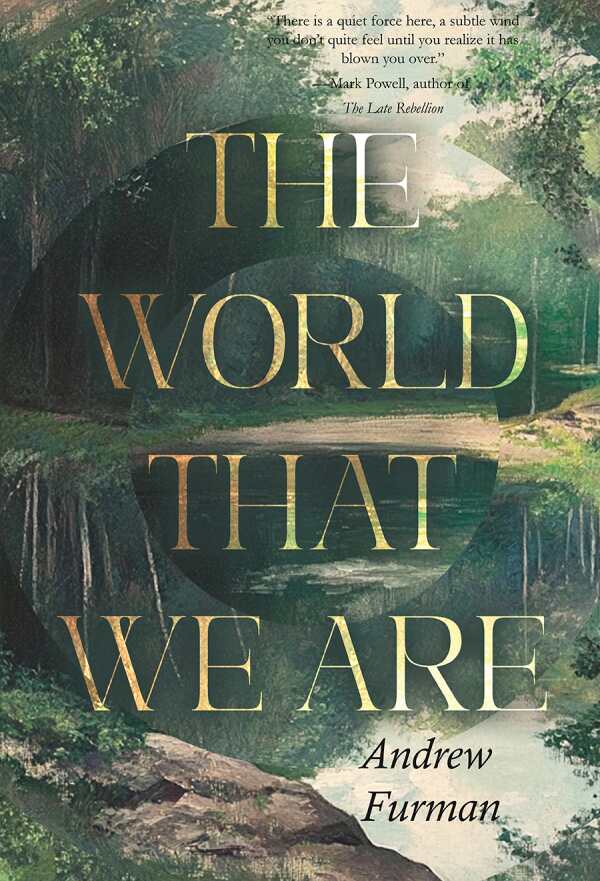The World That We Are
Andrew Furman’s wondrous novel The World That We Are connects young Henry David Thoreau with a contemporary college professor.
In 1837, twenty-year-old Thoreau resigns from his position as a schoolteacher after his superiors insist that he use corporal punishment to control his students. Thoreau also struggles with his lifelong quandary of how to “maintain the integrity” of “individual genius” while avoiding social isolation. Keen descriptions of nature buoy the prose: Thoreau walks through “mentholated” pines, watching chickadees bicker in their “piano-key plumage.”
Nearly two centuries later, David lives in a Maine college town, widowed and estranged from his adult daughter, Ellen. Once regarded as an “academic wunderkind,” he’s the author of a respected book on Thoreau but is now stalled in his research. He tries to ignore his worries about his advancing age, sidelined work, and lack of contact with Ellen. As his scholarly priorities become more multicultural and expansive, David wonders if his dedication to a single “dead white male author” is too archaic.
The book’s perspective alternates between Thoreau and David with surety. Upon the advice of his mentor, Ralph Waldo Emerson, Thoreau keeps a journal to heighten his powers of observation, but excludes his occasional erotic and romantic imaginings, not daring to “transcribe such bestial lines.” His beloved brother dies; a marriage proposal is refused. On the cusp of his Walden Pond “experiment,” he hopes to redirect his troubled focus. He is a fixated yet yearning hero who is fleshed out with humanizing details. And after a series of curious events lead to reunions and reconnections, David’s gradual emergence is rendered in propulsive, life-affirming terms too.
Eloquent and encompassing, the novel The World That We Are intertwines two lives with emotional and historical resonance.
Reviewed by
Meg Nola
Disclosure: This article is not an endorsement, but a review. The publisher of this book provided free copies of the book to have their book reviewed by a professional reviewer. No fee was paid by the publisher for this review. Foreword Reviews only recommends books that we love. Foreword Magazine, Inc. is disclosing this in accordance with the Federal Trade Commission’s 16 CFR, Part 255.

